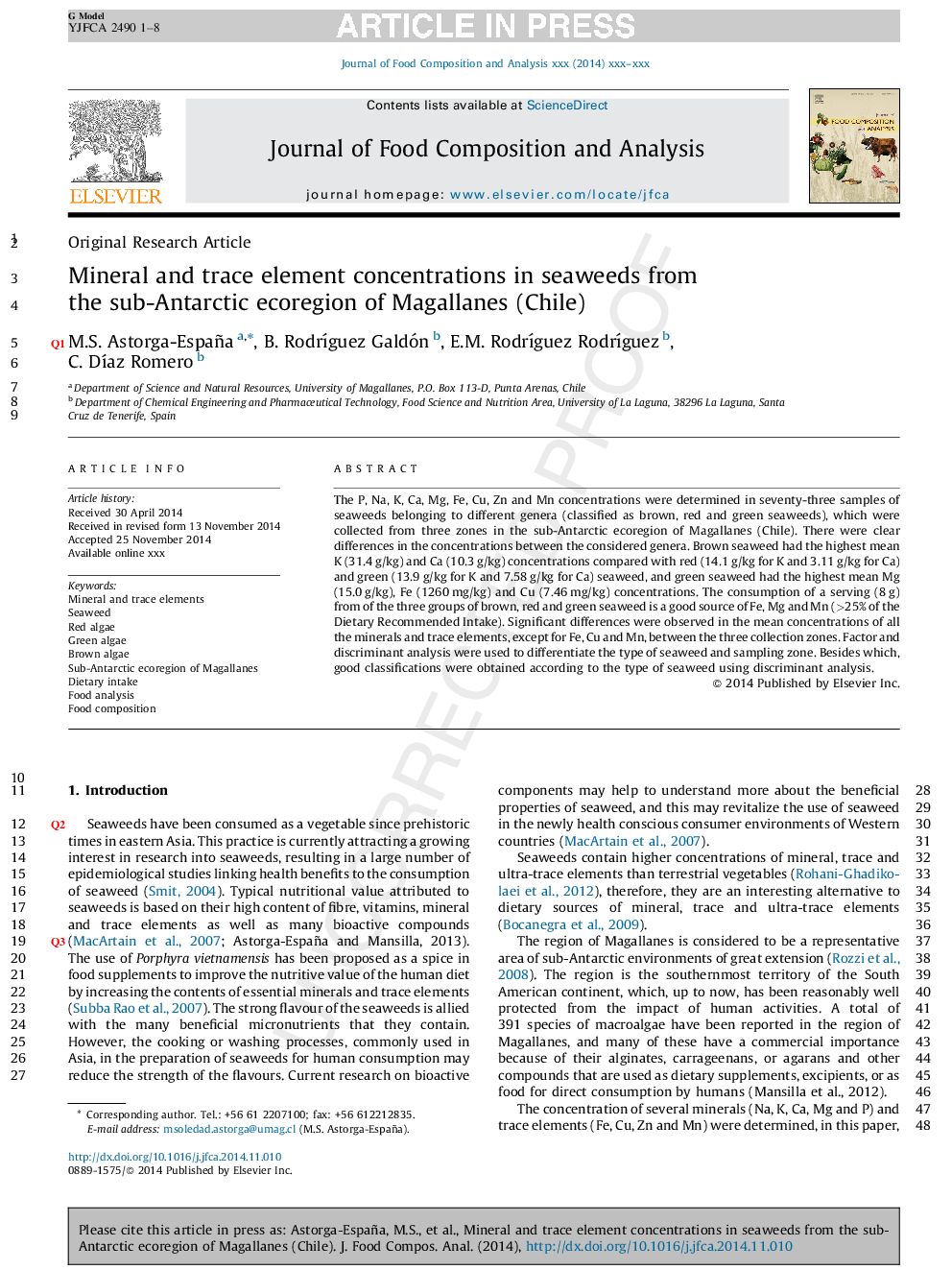| Article ID | Journal | Published Year | Pages | File Type |
|---|---|---|---|---|
| 7620590 | Journal of Food Composition and Analysis | 2015 | 8 Pages |
Abstract
The P, Na, K, Ca, Mg, Fe, Cu, Zn and Mn concentrations were determined in seventy-three samples of seaweeds belonging to different genera (classified as brown, red and green seaweeds), which were collected from three zones in the sub-Antarctic ecoregion of Magallanes (Chile). There were clear differences in the concentrations between the considered genera. Brown seaweed had the highest mean K (31.4Â g/kg) and Ca (10.3Â g/kg) concentrations compared with red (14.1Â g/kg for K and 3.11Â g/kg for Ca) and green (13.9Â g/kg for K and 7.58Â g/kg for Ca) seaweed, and green seaweed had the highest mean Mg (15.0Â g/kg), Fe (1260Â mg/kg) and Cu (7.46Â mg/kg) concentrations. The consumption of a serving (8Â g) from of the three groups of brown, red and green seaweed is a good source of Fe, Mg and Mn (>25% of the Dietary Recommended Intake). Significant differences were observed in the mean concentrations of all the minerals and trace elements, except for Fe, Cu and Mn, between the three collection zones. Factor and discriminant analysis were used to differentiate the type of seaweed and sampling zone. Besides which, good classifications were obtained according to the type of seaweed using discriminant analysis.
Related Topics
Physical Sciences and Engineering
Chemistry
Analytical Chemistry
Authors
M.S. Astorga-España, B. RodrÃguez Galdón, E.M. RodrÃguez RodrÃguez, C. DÃaz Romero,
